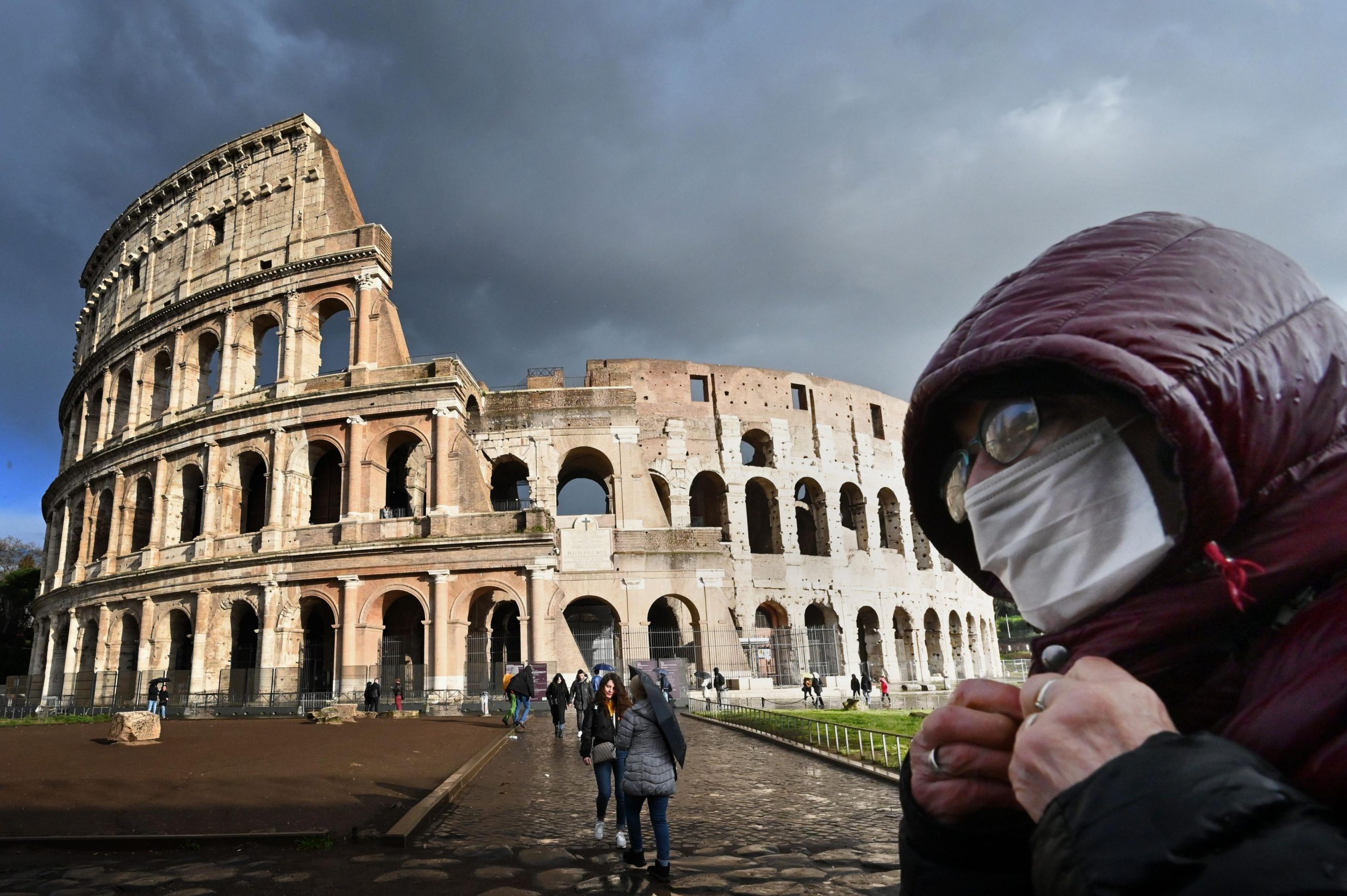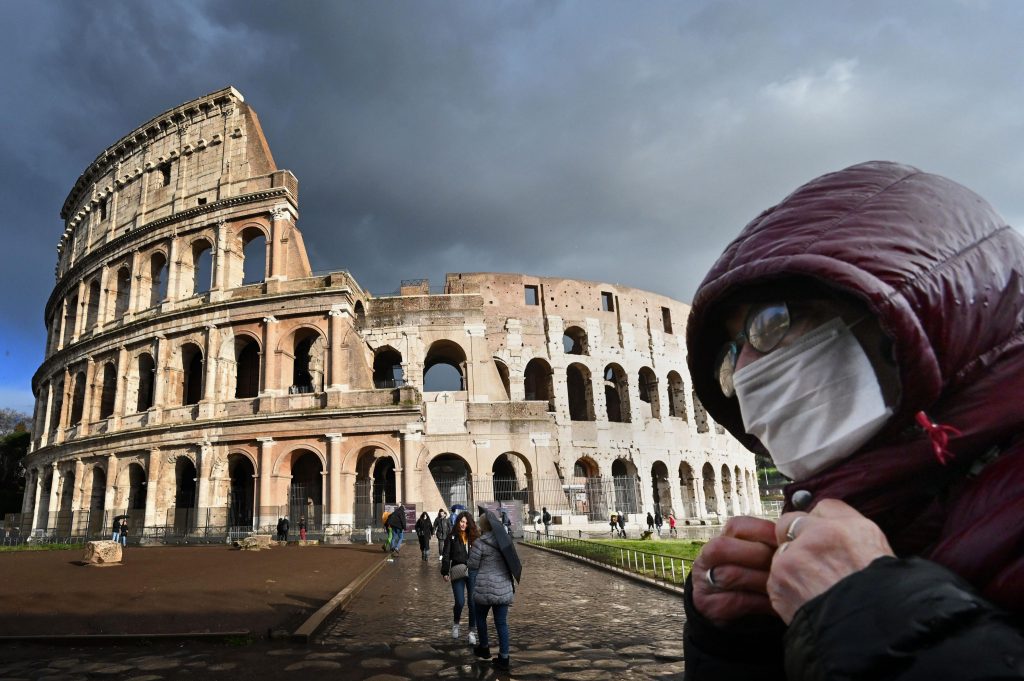
The Communist Party has produced a comprehensive report on the global impact of COVID-19. The following excerpt on Europe details the differing impact of the pandemic across a number of European States.
European Union
International aid
The EU Commission placed a ban on the export from the EU of all Covid related items (PPE, ventilators and drugs) on 12 March. This was in response to the outcry over the unilateral ban on the export of such items to other EU members by Germany and France on 4 March. The ban on such exports is to be reviewed in May. Individual EU countries, such as the Czech Republic, have intercepted and seized convoys bringing aid from Russia and China to other countries in Europe.
EU Financial support for member states
EU institutions have failed to agree on any major financial packages to limit the economic impact of Covid on the weaker members states. On 14 March the Director of the European Central Bank declared that it was not the Bank’s role to ‘close the spread’ between the borrowing rates imposed on different EU governments. After two months of argument the EU Council of Ministers announced on 23 April that a package of financial aid would be available. This would be composed of a package of individual grants equivalent to about 2 per cent of EU GDP – together with a commitment to use this to ‘lever in’ other monies equivalent to 2.5 per cent of EU GDP, possibly as loans. In March the German government had announced its own measures to provide financial assistance for German businesses equivalent to 30 per cent of German GDP (the US Congress and Federal Reserve announced measures also equivalent to 30 per cent US GDP). Italy, Spain and Portugal have expressed strong reservations about the EU measures and fears that most of the aid would be in terms of loans that have to be repaid on economically damaging terms (as in 2010).

Portugal
Covid deaths 22 per 100,000
Portugal has suffered fewer deaths per capita (2,236 per million inhabitants) than Spain (4,700), France (2,423) or Italy (3,142), and has seen new cases drop since roughly the start of April. The Portuguese Communist Party has argued that, although containment and public health measures were necessary, the declared state of emergency to enforce these measures – along with business-oriented economic support policies – are not in the public interest. The state of emergency means restrictions on worker organisation. The bleak economic situation is exacerbated by the years of austerity forced on Portugal by the Troika of European institutions, which are now (especially the Netherlands, Austria, Finland) refusing any material transnational economic redistribution: and the PCP renews calls for Portugal to free itself both from the European Union and from the Euro (again the double bind of monetary and fiscal policy).

Hungary
Covid deaths 0.3 per 100,000
The right-wing government in Hungary has used the coronavirus situation to double down on its repression of progressive forces. The government abolished the right of unions to supervise safety and inspect workplaces. An emergency coronavirus law would suspend any elections during the emergency period and allow the government to rule without scrutiny from the Hungarian parliament. The law also criminalises the publishing of ‘fake news’, accompanied by veiled threats directed towards news outlets critical of the government.
Hungarian Workers Party has also demanded that the government send doctors to care homes, where elderly people are most at risk of dying from the virus. It has also criticised the fact that state support for businesses has largely gone to supporting Swiss, Austrian, and German companies operating in Hungary.
Russia
Covid deaths 0.7 per 100,000
The level of infection in Russia has remained relatively low, although cases have been rising – with 1078 deaths by 29 April. Russia imposed travel restrictions with China in January 2020, and in early April most of the border crossings with China were closed, by joint agreement of both countries. Partly due to the low rates of infection, the response to the virus has been mixed and the country has imposed only partial lockdowns. The government made mistakes, such as organising a large parade in Moscow, which forced them to quarantine large numbers of soldiers. Some historically closed cities under the soviet period have once again been legally restricted to inhabitants and necessary personnel only.
The referendum on extending presidential term limits, originally set for the 22 April, has been delayed until it is safe to hold the vote. The Russian Communist Party (CPRF) supported the introduction of quarantine measures, it warned against oligarchs taking advantage of the situation, and it urged the government to learn from soviet experiences in combatting the epidemic.
France
Covid deaths 24 per 100,000
Confinement of the population was gradually introduced with increasingly severe curfews, up to the 23rd March when citizens were forbidden from going outside beyond 1km from their apartment. Passports and limited authorisations are issued for key workers and other exceptional circumstances.
The population generally accepts these measures. However unfortunately the confinement regime has led to many cases of police using the situation as an excuse for repression and arbitrary harassment, even in cases when citizens have the proper documentation on their person.
The effect of the virus has also been worse in socially disadvantaged neighbourhoods, such as the Paris suburbs. The government tried to avoid these areas getting overwhelmed by moving patients around the country to regions with spare hospital beds. The railway network was used to run special trains for this purpose. Overall the virus has exposed the inequalities in the French healthcare system.
The French Communist Party (PCF) has put forward its proposals for dealing with the crisis, which include: the nationalisation of strategic industries, repurposing the armed forces for medical priorities, an immediate 20% salary increase for key workers, a stop to all economic redundancies, suppression of VAT on necessary goods, and the creation of a European fund for financing health services. They also call for strengthened parliamentary oversight of the confinement measures, so as to prevent potential abuses of power.
Poland
Covid deaths 0.8 per 100.000
Poland has experienced a more limited exposure to the Coronavirus than was anticipated. The latest figures at 29 April saw 12,640 confirmed cases and 624 deaths (38m pop) with 3,025 people in recovery.
Poland’s right wing authoritarian government imposed lockdown measures in two stages in March including limiting family gatherings and religious assemblies to six.
Non essential travel was banned and the government responded to concerns expressed by medical professionals by attempting to muzzle them. This met with resistance from doctors and the Ombudsman gave constitutional protection to their rights to comment on grounds of freedom of speech and the right of the public to information.
Polish trade union have reacted strongly to attacks on trade union and workers rights under government proposal to meet the pandemic. The initial government “protective shield package” in early April greatly restricted workers’ rights: companies were given the option of extending working hours to up to 60 hours a week and reducing minimum rest periods between shifts from eleven to nine hours.
The main union OPZZ and even Solidarnosc which usually is aligned with the government party opposed the measures and were successful in blunting their effect.
Attempts by the government – with threats of dismissal – to direct the labour of health workers led to collective action in which many refused to work without the appropriate protective equipment.
Initially the government proposed allowing dismissal by e-mail, freedom of dismissal for workers with a secondary source of income, forced holiday leave, suspension of job security rights and collective dismissals the suspension of collective bargaining.
OPZZ warned that the government was planning further changes. Tightened measures saw children and adolescents under the age of 18 only allowed to leave the house under the supervision of an adult. Prime Minister Mateusz Morawiecki wants the presidential election scheduled for May 10 to go ahead with a postal vote which would advantage the ruling party.
Opposition parties have called for a postponement of the vote.
Spain
Covid deaths 47 per 100,000
Spain has been hit particularly hard by the virus, with the largest death toll per capita of any large country (i.e. of over 1 million inhabitants: Luxembourg, Iceland, San Marino etc have a higher death rate). The PCE has called for a coordinated industrial policy of production of sanitary equipment (including PPE), as well as greater international solidarity and cooperation with Cuba, China, Venezuela. It has called for a pan-European plan for aid to poorer countries and sectors affected by the pandemic: but interestingly, supported the Portuguese premier’s description of the current European reaction as “disgusting”.
Italy
Covid Deaths 31 per 100,000
In general, the pandemic situation in Italy is still grave, but steadily improving. Political and journalistic attention is focusing to the economic after effects of the pandemic, of pan-European “solidarity” (especially with regards to monetary and fiscal policy, through the ECB and European Commission/Council respectively). Before the complete lockdown of most “non-essential” economic activity, a series of strikes were taken out in the industrial areas most hit by the virus (Lombardy) with regards to workers safety, e.g. a strike of 700 workers at the Electrolux factory of Solaro in mid-March. The Trade Unions, especially the prominent CGIL (historically CP-affiliated), were key players in achieving the lockdown early, and have been heavily involved in negotiating economic and social restrictions.
The political and social context for Europe’s initially biggest outbreak
Italy provides the test case for the absolute necessity in timely preparations for outbreaks of coronavirus type pandemics. Among the comuni least affected by the COVID-19 virus is Prato which has a large number of people of Chinese extraction working in the textile business. Infection rates are low because the the local population were more attuned to China’s swift and effective response to the spread of the infection and began practicing social isolation measures well before the Italian state and population in general were switched on to its necessity.
The latest figure 23 April 2020 for Italy is confirmed cases of infection 187,327 with 25,085 dead and 54,543 recovered. The highest incidences of cases occurred in the more northern regions. Lombardy, which includes Milan and the commune most especially affected Bergamo, Emilia Romagna, Piedmont and Veneto between them comprised the great majority of cases.
The response of the Italian state has been very rigorous with regional lockdowns enforced by the police and travel closely controlled by the carabinieri force directed by the Defence Ministry. There has been a strong movement of social solidarity and in places very great appreciation for aid deliveries from China and Cuba.
This is in contrast to what is politically the most profound movement in opinion which has been in relation to the EU.
Following the statement by Christine Lagarde, president of the ECB that “we are not here to close spreads” – which caused a sharp rise in Italian bond yields opinion polls show that 88 percent of Italians say that the EU failed to support Italy in the crisis, while just 4 percent believe that it is doing enough. Now 67 percent of Italians regard EU membership as a disadvantage, a rise from 47 percent in November 2018.
The response of political sectors of Italian life to the crisis has been instructive and closely parallels the differential response by political actors in other states. An interesting poll shows support Salvini’s Lega is down 7.3% to 27% from its EU election total. PD is steady at around 22.5% while Cinque Stelle has dropped from 17.1% to 15.6%. In this fluid situation the loss of trust in both Lega and Cinque Stella may reflect their loss of prestige while in government and their vacillations over the EU which has seen both of them row back on their earlier critical rhetoric.
There has been some movement within the right to consolidate around the Fratelli di Italia semi fascist fringe and at the expense of Lega and especially Berlusconi’s Forza Italia. Fratelli leader Giorgia Meloni is quite cleverly replicating the approach of an earlier leader of the far right Fini to appear as responsible and honest in comparison to their more sleazy rivals on the right.
Lega strongest areas were in the north where the they were blinded by their ideology and misunderstood the nature of the threat. Salvini’s problem is that he bears regional responsibility in the areas most affected and despite a largely tokenistic bid to allow churches to open during easter has been largely mute.
His bid to crush his government partner/populist rival Cinque Stella failed and he is out of government while the new Conte government has been able to rally opinion in a national effort.
The Italian Communiust Party points out that China has had to rush to the rescue of the most powerful capitalist state, supplying it with ventilators and other health protection tools.
“The confrontation of the capitalist West with the socialist states, starting precisely from China, is merciless: it is no coincidence that a society bound to the short-lived imperatives of the market and profit determines a distorting model of coexistence which is in fact not only unfair from the point of view of the production and the distribution of wealth, but also culpably fragile in terms of general social security.
“The common thought, which is less confused, that “nothing can be as before” has made its way into the common opinion. We Communists say that a profound transformation of the mode of production is needed, as well as ideas, aspirations and negative values inspired by the dominant liberal ideology.
“These considerations should ignite at least some doubts about the international relations maintained to date by the Italian governments of the center-right and center-left: relations characterized by loyalty to the Atlantic area and whatever the cost – to the European Union.”
The Italian communists say that the painful health situation has emphasized an internal crisis already underway in the European Union, posing a radical question for the very raison d’etre of the latter.
Leo Impett
Pierre Marshall
Nick Wright
This article first featured in the Communist Party’s May 2020 International Bulletin.




